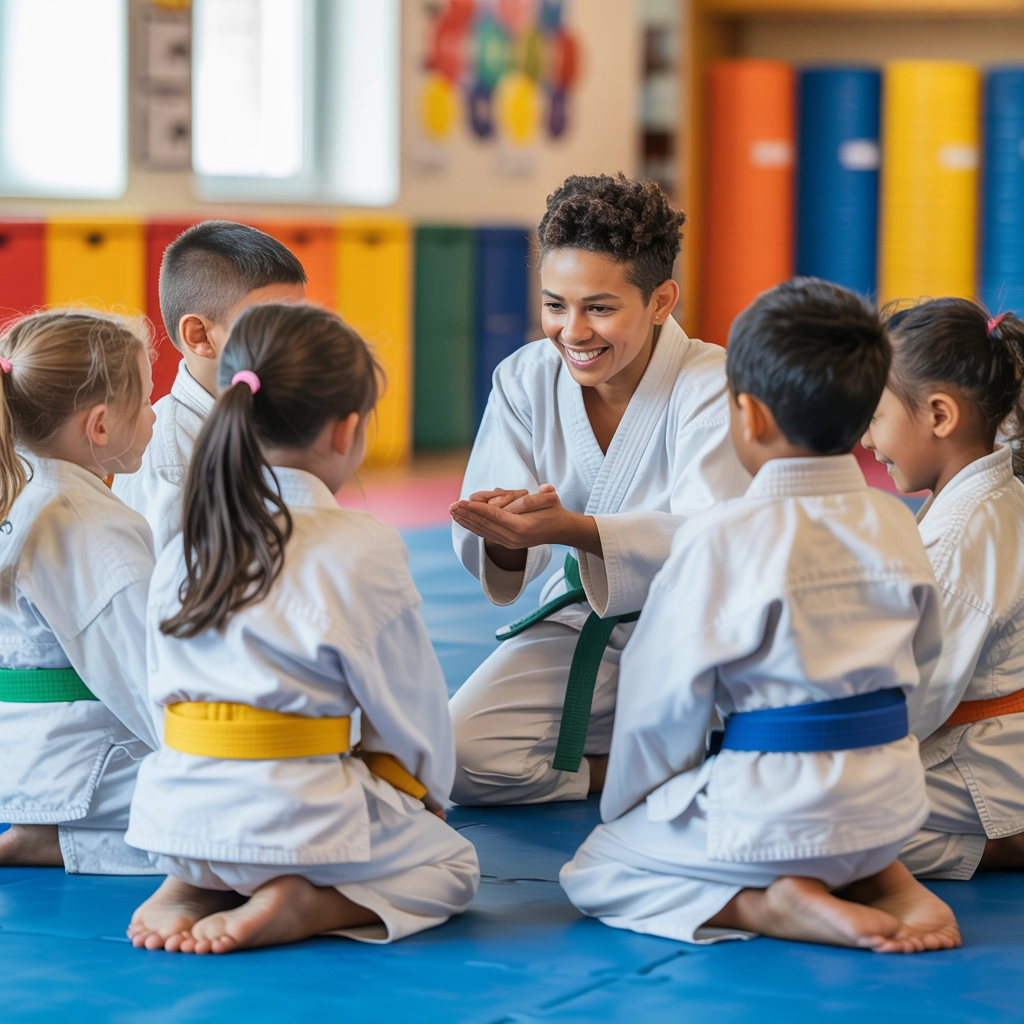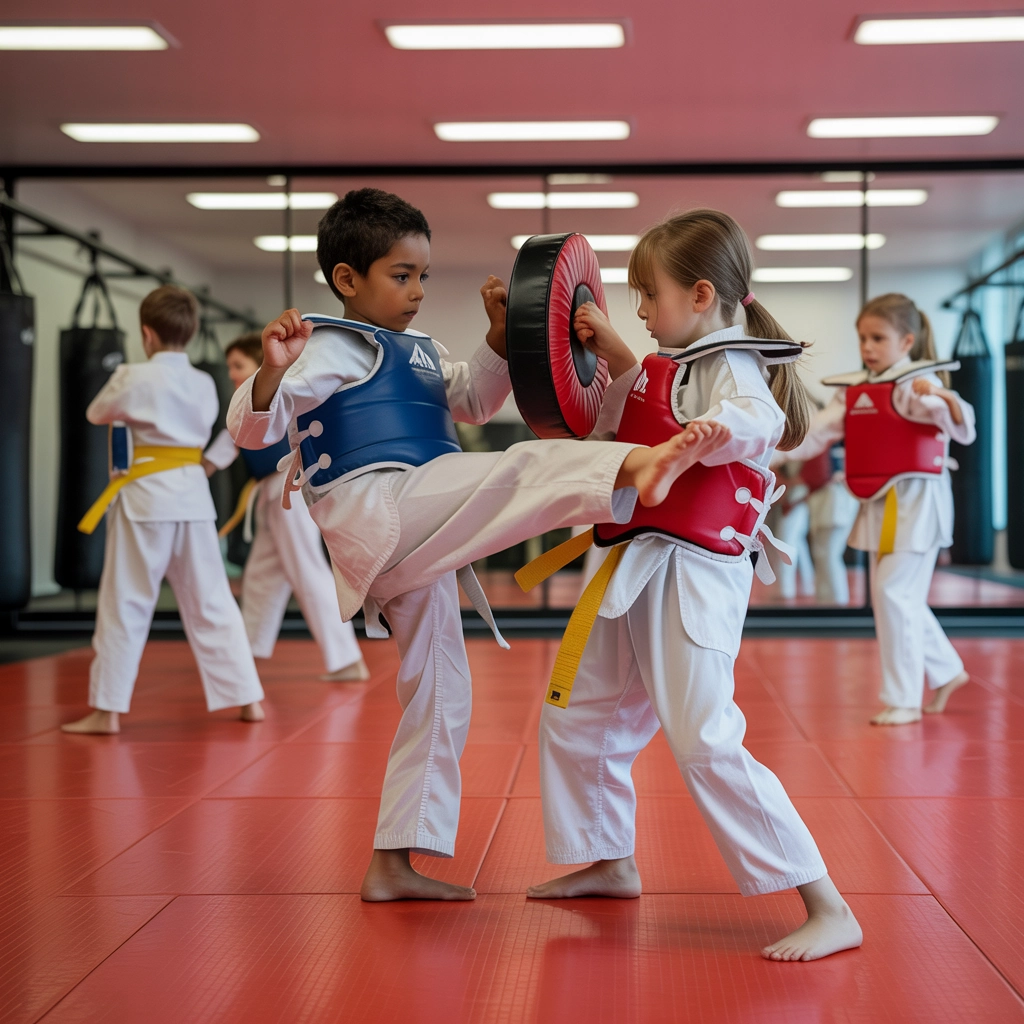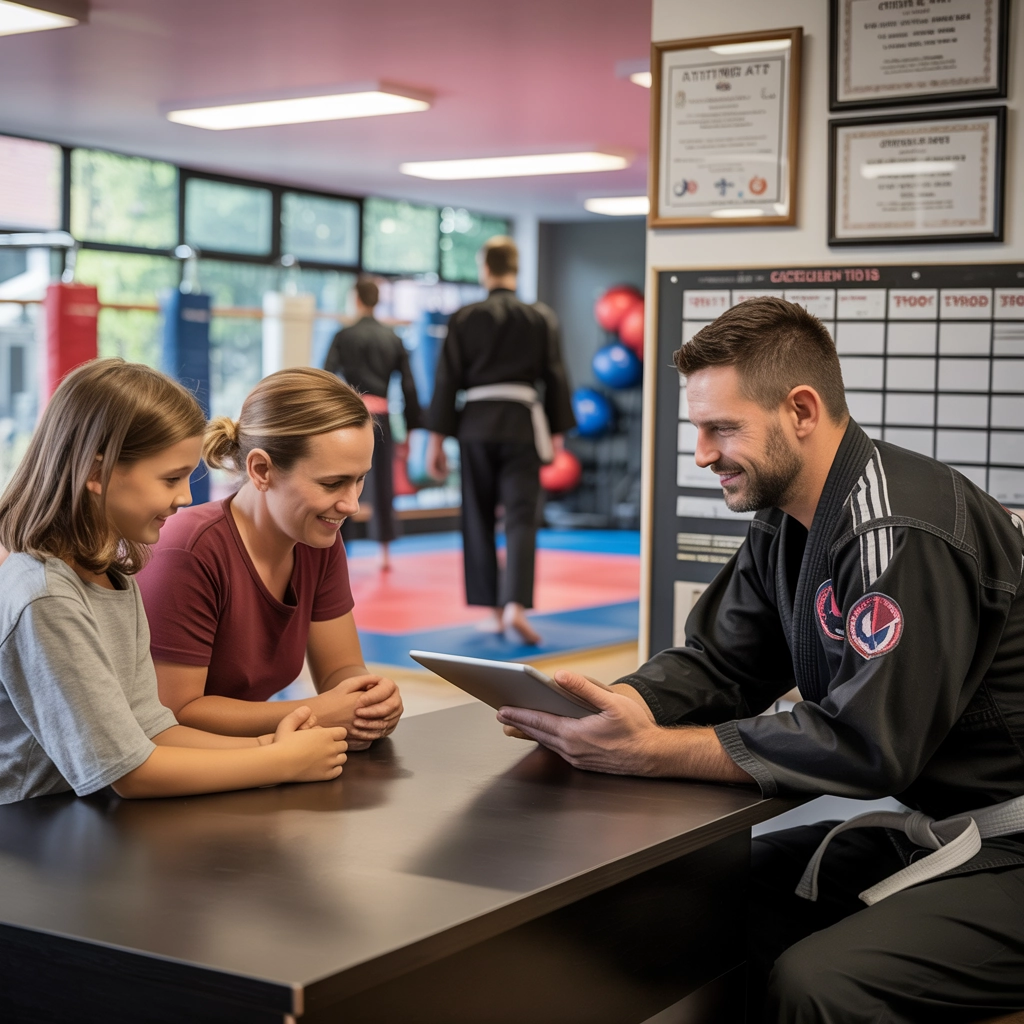
The Ultimate Parent’s Guide: Choosing the Right Martial Arts School for Your Child (And What Really Matters!)
July 8, 2025

The Ultimate Parent’s Guide: Choosing the Right Martial Arts School for Your Child (And What Really Matters!)
Introduction: Beyond the Kicks and Punches
So, you’re thinking about martial arts for your child? Smart move! But with so many options out there—from traditional dojos to modern MMA gyms—how do you choose the right one?
As parents ourselves at Changing Lives Martial Arts, we’ve guided thousands of families through this decision. The truth is: what looks impressive in movies isn’t necessarily what builds confident, focused kids in real life.
This guide cuts through the marketing hype to help you focus on what truly matters when choosing a martial arts school for your child—because this decision impacts far more than just their ability to throw a punch.
Start With Your Child, Not the Style
Before researching schools, take a moment to consider your child’s:
- Personality: Is your child shy or outgoing? Energetic or reserved?
- Goals: Are you looking for fitness, confidence-building, discipline, or self-defense?
- Learning style: Does your child thrive with structure or need flexibility?
- Previous experience: Are they athletic or new to physical activities?
“The best martial art is the one your child will actually enjoy and stick with,” explains Chief Instructor LainaLee Rambow. “A program that works wonderfully for one child might be completely wrong for another.”
Decoding Different Martial Arts Styles
While many martial arts schools (including ours) teach blended approaches, understanding the core differences helps narrow your search:
Stand-Up Martial Arts
These focus primarily on striking while standing:
- Taekwondo: Emphasizes dynamic kicks, forms (patterns), and sport competition. Great for kids who need to channel energy positively while practicing focus and discipline.
- Karate: Focuses on disciplined strikes, blocks, and traditional movements. Excellent for building focus and self-control.
- Kickboxing: Combines boxing and kicking techniques. Appeals to older kids who want practical skills and fitness.
Ground-Based Martial Arts
These emphasize control, throws, and floor techniques:
- Brazilian Jiu-Jitsu: Centers on grappling and ground control. Teaches smaller practitioners to defend against larger opponents.
- Judo: Features throws, trips, and pins. Builds tremendous balance and coordination.
- Wrestling: Focuses on takedowns and control. Great for developing work ethic and physical toughness.
Hybrid Systems
- Mixed Martial Arts (MMA): Combines elements from multiple styles. Best for older kids interested in comprehensive training.
- Self-Defense Programs: Focus on practical, real-world scenarios rather than tradition or sport.
What REALLY Matters: The Non-Negotiables
After visiting hundreds of martial arts schools across the country, we’ve identified the true factors that separate excellent programs from mediocre ones:
1. Instructor Quality
Nothing—absolutely nothing—matters more than who’s teaching your child. Look for:
- Certification and training: Legitimate instructors have verifiable credentials
- Teaching experience with children: Adult martial arts teaching skills don’t automatically transfer to kids
- Character and communication style: They should inspire respect naturally, not through fear
“A great instructor makes complex movements simple, builds confidence through incremental challenges, and connects with each child individually,” notes Master Instructor David Chen. “They’re creating not just martial artists but future leaders.”
2. Safety Protocols
Martial arts involves physical contact, so safety standards must be impeccable:
- Clean, well-maintained facilities with proper mats and equipment
- Age-appropriate curriculum with modifications for different ability levels
- Proper supervision and appropriate student-to-instructor ratios
- Injury prevention focus and first-aid readiness
3. Positive, Supportive Environment
The dojo atmosphere significantly impacts your child’s experience:
- Supportive peer community: Students should encourage each other
- Zero tolerance for bullying: Watch how existing students interact
- Celebration of individual progress: Not just trophies and competitions
- Inclusivity: Programs should accommodate various abilities and backgrounds
Red Flags: When to Walk Away
Be wary of schools that exhibit any of these warning signs:
- Long-term contracts with no trial period: Quality programs let you try before committing
- Excessive focus on competitions and trophies: Unless your child specifically wants competitive training
- Instructor intimidation or humiliation tactics: Respect should flow both ways
- Unrealistic promises: Be skeptical of guarantees about belt progression or championship results
- Poor supervision or chaotic classes: Structure is essential for safety and learning
- Hard selling or pressure tactics: Quality programs sell themselves through results
Trial Class Checklist: What to Watch For
Most reputable schools offer trial programs. Here’s what to observe during your visit:
Before Class:
- How are you and your child greeted?
- Is the facility clean and well-maintained?
- Do current students seem happy to be there?
During Class:
- How does the instructor manage different skill levels?
- Is feedback constructive and positive?
- Are safety protocols evident and followed?
- Do all children get attention, or just the naturals?
After Class:
- How does your child feel about the experience?
- Were expectations and next steps clearly communicated?
- Did the instructor take time for questions?
“The right school feels right from the moment you walk in,” says Head Instructor Mike Johnson. “There’s an energy you can sense—respect, enthusiasm, and genuine care for each student’s journey.”
Questions to Ask Before Enrolling
Don’t be shy about asking direct questions:
- What’s your teaching philosophy for children?
- How do you handle discipline issues?
- What’s your instructor-to-student ratio?
- How do you accommodate different learning styles or needs?
- What does advancement look like, and how is it earned?
- How do you measure progress beyond belt ranks?
- What’s your policy on makeup classes or scheduling flexibility?
- How do you communicate with parents about progress or concerns?
Beyond the Dojo: Supporting Your Child’s Journey
Once you’ve found the right school, your role remains crucial:
- Be consistent with attendance: Skills develop through regular practice
- Communicate with instructors: Share insights about your child’s needs
- Reinforce lessons at home: Ask what they learned and help them practice
- Celebrate progress: Not just belt advancement but small improvements
- Be patient: Some skills take time to develop
The Intangibles: Life Skills That Last Forever
The best martial arts programs teach skills that extend far beyond self-defense:
- Self-discipline and focus: Following through on commitments
- Resilience: Learning to bounce back from setbacks
- Respect: For self, peers, instructors, and opponents
- Goal-setting: Breaking large achievements into manageable steps
- Confidence: Built through genuine skill development, not false praise
“The kicks and punches are just tools,” explains Master Chen. “The real transformation happens inside—in how children see themselves and approach challenges in life.”
Finding the Perfect Fit
Remember that the “best” school isn’t necessarily the one with the most trophies or the fanciest facility. It’s the one where your child feels seen, supported, and excited to return each week.
At Changing Lives Martial Arts, we believe martial arts training should be both challenging and joyful—pushing children to grow while meeting them exactly where they are. Our programs are designed to build not just physical skills but the mental and emotional tools children need for lifelong success.
Try Before You Decide
Ready to see what martial arts can do for your child? Changing Lives Martial Arts offers a free 2-week trial program that lets your child experience classes firsthand with zero obligation.
Come see why so many parents trust us with their children’s martial arts journey. We’d be honored to show you what makes our approach different.
Visit our website or call us today to schedule your child’s first class. The journey of a thousand kicks begins with a single step!


